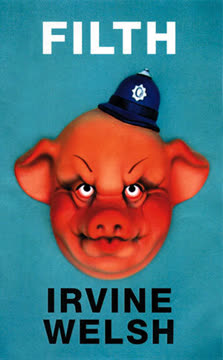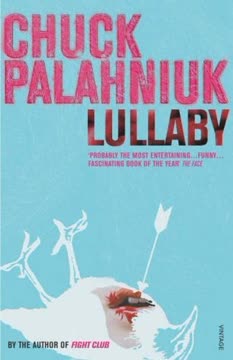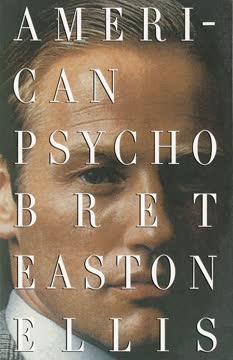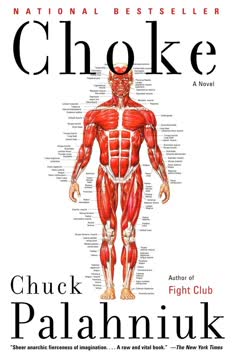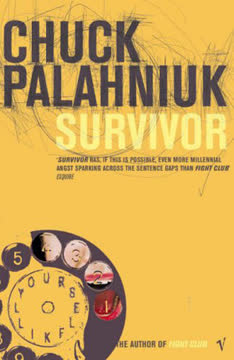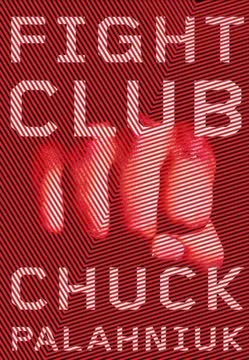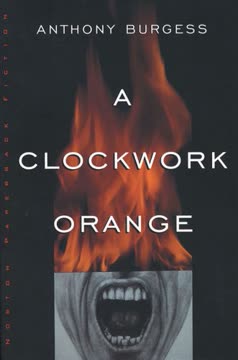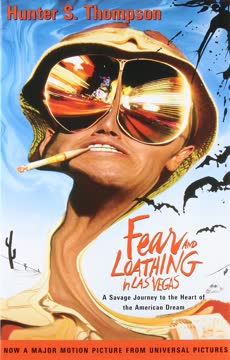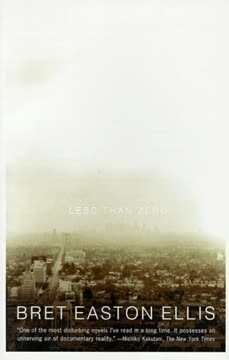Plot Summary
Prologue: Blood and Darkness
The novel opens with a brutal, anonymous murder on a cold Edinburgh stairwell. The killer's perspective is chillingly detached, describing the act as a job that simply had to be done. Blood, violence, and the bleakness of the city set the tone for the story's descent into the mind of Detective Sergeant Bruce Robertson. The prologue's visceral imagery and emotional numbness foreshadow the psychological unraveling to come, establishing a world where violence is routine and empathy is absent. The city's filth, both literal and metaphorical, seeps into every corner, and the reader is immediately thrust into a narrative where morality is ambiguous and the line between law enforcer and criminal is disturbingly thin.
The Games We Play
Bruce Robertson, a seasoned detective, navigates the toxic environment of the police force by playing psychological games with colleagues and suspects alike. The "games" are his way of coping with the job's pressures and his own insecurities. He manipulates, bullies, and undermines those around him, always seeking to maintain control and superiority. The police station is a microcosm of power struggles, petty rivalries, and casual bigotry. Bruce's ambition for promotion drives his every move, but his methods are corrosive, leaving him increasingly isolated. The games are not just professional—they bleed into every aspect of his life, poisoning relationships and eroding his sense of self.
Crime and Corruption
The investigation into a racially charged murder is quickly overshadowed by the everyday corruption and cynicism of the force. Bruce and his colleagues treat the case with indifference, more concerned with their own comfort and advancement than with justice. The police are depicted as self-serving, racist, and misogynistic, their camaraderie built on shared prejudices and mutual distrust. Bruce's own criminality—petty theft, abuse of power, and manipulation—mirrors the very filth he claims to fight. The city's underbelly is not just the domain of criminals; it is the habitat of the police themselves, who perpetuate the cycle of violence and degradation.
Wheels of Ambition
Bruce's obsession with securing a promotion to Inspector consumes him. He navigates departmental politics, currying favor with superiors while sabotaging rivals. The force is in the midst of a reorganization, and Bruce's sense of entitlement clashes with the reality of his declining competence. His personal life deteriorates in parallel—his marriage is strained, his health is failing, and his mental state is increasingly unstable. The "wheels" refer both to the literal cars he drives around the city and the relentless, grinding machinery of ambition that propels him toward self-destruction.
Investigations and Interrogations
The murder investigation stalls as Bruce's focus shifts to manipulating witnesses and colleagues. He uses intimidation, sexual harassment, and psychological abuse as tools of the trade. The narrative exposes the hollowness of police procedure—evidence is ignored, suspects are coerced, and the truth is secondary to maintaining appearances. Bruce's own guilt and paranoia intensify, manifesting in physical symptoms and hallucinations. The investigation becomes a mirror for his internal chaos, and the boundaries between cop and criminal blur further.
Carole's Longing
Carole, Bruce's estranged wife, offers a rare glimpse of vulnerability and longing. She reflects on their relationship, her own sexuality, and the games they play to keep their marriage alive. Carole's narrative is tinged with sadness and hope—she believes in Bruce's goodness, even as he spirals out of control. Her voice is a counterpoint to the brutality of Bruce's world, revealing the emotional cost of his actions on those who love him. The chapter underscores the theme of disconnection, as Carole waits for a reconciliation that may never come.
Equal Opportunities, Unequal Lives
The police force's attempts at "equal opportunities" are exposed as hollow gestures. Diversity training sessions are met with mockery and resistance, especially from Bruce and his peers. The narrative satirizes the bureaucracy of modern policing, where political correctness is a performance rather than a principle. Bruce's racism and misogyny are not aberrations but are embedded in the culture of the force. The chapter highlights the futility of institutional reform in the face of entrenched bigotry and the ways in which power protects itself.
Coarse Briefings, Dirty Deeds
The daily routines of the police—briefings, paperwork, canteen banter—are depicted as rituals that mask deeper dysfunction. Bruce's interactions with colleagues are laced with cruelty and contempt. The force's camaraderie is built on shared transgressions and mutual blackmail. The chapter delves into the psychology of group dynamics, showing how individuals are corrupted by the collective. Bruce's own sense of identity is increasingly fragmented, as he oscillates between bravado and self-loathing. The "coarse briefings" are both literal and symbolic, representing the erosion of professionalism and humanity.
Sentiment and Survival
Amid the relentless cynicism, moments of sentimentality and vulnerability surface. Bruce is haunted by memories of his family, his lost innocence, and the possibility of redemption. These flashes of emotion are quickly suppressed, as survival in his world demands emotional numbness. The chapter explores the tension between the desire for connection and the fear of exposure. Bruce's attempts at intimacy—whether with Carole, colleagues, or strangers—are sabotaged by his own self-destructive impulses. The struggle to survive, both physically and psychologically, becomes the central drama.
At Home with the Blades
Bruce's relationship with his friend Clifford Blades and Blades's wife, Bunty, is a study in manipulation and betrayal. Bruce seduces Bunty, exploiting her loneliness and Blades's inadequacy. The narrative exposes the toxic dynamics of male friendship, where loyalty is a mask for rivalry and exploitation. Sexual games—both consensual and coercive—are a recurring motif, reflecting the characters' need for power and validation. The chapter is laced with dark humor and pathos, as Bruce's actions leave a trail of emotional wreckage.
Turning Off the Gas
Bruce's sexual encounters become increasingly violent and desperate, culminating in acts of autoerotic asphyxiation and sadomasochism. The "turning off the gas" motif symbolizes the desire to escape numbness through extreme sensation. The chapter blurs the line between pleasure and pain, love and hate. Bruce's relationships with women—Carole, Shirley, Chrissie, Bunty—are transactional and destructive. The search for feeling, for proof of life, leads only to further alienation and self-harm.
Infected Areas
Bruce's body becomes a battleground, as he develops a persistent rash and is diagnosed with tapeworms. The physical symptoms are metaphors for his psychological disintegration—the filth inside him is literalized as disease. Medical visits offer no relief; the doctors are as indifferent and ineffectual as the police. The chapter is suffused with imagery of contamination and rot, reflecting the novel's central theme: the inescapability of filth, both external and internal. Bruce's attempts to cleanse himself—through sex, violence, or drugs—only deepen his sense of corruption.
The Lie of the Land
As the investigation falters, Bruce's paranoia intensifies. He becomes convinced that colleagues are plotting against him, that his secrets are about to be exposed. The "lie of the land" refers both to the literal geography of Edinburgh and the shifting allegiances within the force. Bruce's sense of reality becomes increasingly unstable, as hallucinations and voices intrude on his consciousness. The chapter is a descent into madness, as the boundaries between self and other, truth and lie, dissolve.
Our Cover Is Blown
Bruce's trip to Amsterdam with Bladesey is an attempt to escape the pressures of work and self. The city's permissiveness offers temporary relief—sex, drugs, and anonymity—but the filth follows him. The holiday is marred by violence, humiliation, and the breakdown of friendship. The "cover" is both literal (as Bruce pretends to be undercover) and metaphorical (as his defenses crumble). The chapter underscores the futility of escapism; wherever Bruce goes, he brings his own darkness with him.
Cok City: Amsterdam Escapes
In Amsterdam, Bruce indulges every vice—prostitution, cocaine, alcohol—in a desperate bid to feel alive. The city's red-light district is a mirror of his own moral decay. Encounters with sex workers, tourists, and criminals blur into a haze of sensation and regret. The narrative is fragmented and hallucinatory, reflecting Bruce's disintegrating psyche. The chapter is a meditation on addiction—not just to substances, but to power, sex, and self-destruction. The search for oblivion is relentless, but never complete.
Post-Holiday Blues
Back in Edinburgh, Bruce's life unravels. The consequences of his actions—at work, at home, with friends—catch up with him. He is demoted, ostracized, and physically broken. The "blues" are both emotional and existential; the holiday's promise of escape has proven hollow. Bruce's relationships are in ruins, his career is over, and his body is failing. The chapter is suffused with a sense of inevitability—the games are over, and the reckoning has come.
Worms and Promotions
Bruce's final attempts to secure promotion are thwarted by his own incompetence and the machinations of others. His physical decay mirrors his professional decline—he is literally and figuratively eaten from within. The tapeworm becomes a symbol of his self-destructive appetites, consuming him from the inside. The chapter is a study in defeat, as Bruce is forced to confront the emptiness of his ambitions and the futility of his games. The narrative's tone shifts from bravado to despair, as the protagonist is stripped of all illusions.
Home Is the Darkness
The novel ends with Bruce alone, suspended from the force, abandoned by friends and family, and consumed by guilt and self-loathing. The voices in his head—manifestations of his fractured psyche—torment him. He confesses, in fragmented, hallucinatory prose, to the murder at the novel's start, revealing the depth of his depravity and the extent of his self-delusion. The final image is one of darkness and silence, as Bruce contemplates suicide and the impossibility of redemption. The filth, both literal and metaphorical, is inescapable; the only escape is oblivion.
Characters
Bruce Robertson
Bruce is a Detective Sergeant in the Edinburgh police, driven by ambition, resentment, and a profound sense of inadequacy. His relationships—with colleagues, friends, and family—are defined by manipulation, cruelty, and betrayal. Psychologically, Bruce is a study in self-loathing: he projects his own filth onto the world, justifying his actions through cynicism and nihilism. His racism, misogyny, and abuse are not just personal failings but symptoms of a deeper malaise. As the novel progresses, Bruce's mental and physical health deteriorate—he is plagued by hallucinations, paranoia, and a literal infestation of tapeworms. His descent into madness is both horrifying and pitiable, culminating in a confession that blurs the line between victim and perpetrator.
Carole Robertson
Carole is Bruce's estranged wife, whose perspective offers a rare glimpse of vulnerability and hope. She is both a victim of Bruce's cruelty and a participant in the games that define their marriage. Carole's longing for reconciliation is tinged with self-doubt and guilt—she blames herself for Bruce's decline, even as she recognizes his capacity for harm. Her sexuality and desire for connection are contrasted with Bruce's brutality, highlighting the emotional cost of his actions. Carole's narrative is a counterpoint to the novel's darkness, embodying the possibility of love and forgiveness, even as it is ultimately denied.
Clifford "Bladesey" Blades
Bladesey is Bruce's friend and Masonic brother, a civil servant whose social awkwardness and need for acceptance make him an easy target for Bruce's games. His marriage to Bunty is fraught with insecurity and sexual frustration, which Bruce exploits for his own amusement. Bladesey's loyalty is repaid with betrayal—he is framed, humiliated, and ultimately ostracized. Psychologically, Bladesey represents the collateral damage of Bruce's pathology: a fundamentally decent but weak man destroyed by his association with the protagonist.
Bunty Blades
Bunty is Bladesey's wife, whose dissatisfaction with her marriage leads her into an affair with Bruce. She is intelligent, sensual, and emotionally complex, seeking validation and excitement outside her stifling domestic life. Bunty's relationship with Bruce is both empowering and destructive—she is awakened sexually but manipulated emotionally. Her eventual realization of Bruce's duplicity is devastating, leaving her isolated and vengeful. Bunty's arc is a commentary on the limited options available to women in a patriarchal world, and the dangers of seeking liberation through men like Bruce.
Amanda Drummond
Drummond is a young, ambitious policewoman who represents the possibility of institutional reform. She is committed to equality and professionalism, but her efforts are undermined by the entrenched sexism and racism of the force. Drummond's interactions with Bruce are fraught with tension—she is both a target of his abuse and a mirror for his failings. Psychologically, Drummond is resilient but vulnerable, struggling to maintain her integrity in a hostile environment. Her presence in the narrative highlights the generational and ideological divides within the police.
Ray Lennox
Lennox is a younger detective, initially mentored by Bruce but increasingly positioned as his rival. He is ambitious, competent, and adaptable, willing to play the institutional game to advance his career. Lennox's relationship with Bruce is complex—he admires and resents his mentor, ultimately surpassing him. Psychologically, Lennox is pragmatic and emotionally guarded, able to compartmentalize his actions in a way that Bruce cannot. His rise to promotion is both a personal victory and a commentary on the changing face of the police.
Gus Bain
Gus is an older detective, representative of the traditional values of the force. He is loyal, hardworking, and somewhat naive, unable to adapt to the shifting politics of the department. Gus's friendship with Bruce is genuine but ultimately exploited—he is manipulated into undermining his own prospects for promotion. Psychologically, Gus is a tragic figure, undone by his inability to play the game as ruthlessly as his younger colleagues.
Peter Inglis
Inglis is a detective whose homosexuality makes him a target for abuse and exclusion. He is competent but isolated, unable to find acceptance within the hyper-masculine culture of the force. Inglis's arc is one of humiliation and defeat—he is outed, mocked, and denied promotion. Psychologically, Inglis is a study in internalized shame and the corrosive effects of institutional homophobia.
Dougie Gillman
Gillman is a detective whose brutality and racism are both assets and liabilities within the force. He is loyal to Bruce but ultimately expendable, used as a tool and then discarded. Psychologically, Gillman is a product of his environment—his violence is both a survival strategy and a symptom of deeper trauma. His fate is a warning about the costs of unchecked aggression.
Robert Toal
Toal is Bruce's boss, a man whose attempts at leadership and reform are undermined by his own incompetence and vanity. He is obsessed with appearances—writing a screenplay, cultivating a trendy image—but lacks the substance to effect real change. Toal's relationship with Bruce is ambivalent—he is both a rival and a potential ally, but ultimately powerless to prevent Bruce's downfall. Psychologically, Toal is a study in self-delusion and the limits of authority.
Plot Devices
Unreliable Narration and Fragmented Perspective
The novel employs a deeply unreliable narrator in Bruce Robertson, whose perspective is fragmented, hallucinatory, and self-serving. The narrative is punctuated by shifts in voice—Carole's longing, the tapeworm's monologue, the voices in Bruce's head—creating a sense of disorientation and instability. This device mirrors Bruce's psychological unraveling, forcing the reader to question the truth of his account. The use of direct address, stream-of-consciousness, and metafictional asides further destabilizes the narrative, blurring the line between reality and delusion. The structure is cyclical and recursive, with motifs and phrases recurring in altered forms, reflecting the protagonist's inability to escape his own filth.
Satire and Dark Comedy
The novel's tone is laced with biting satire and black humor, targeting the police, masculinity, racism, and bureaucracy. The absurdity of police rituals—briefings, diversity training, canteen banter—is exaggerated to the point of grotesque comedy. Sexual and scatological humor abounds, serving both to shock and to undermine the seriousness of the characters' pretensions. The use of parody—of police procedurals, self-help language, and even screenwriting—serves to expose the emptiness of institutional authority and the futility of reform.
Physical and Psychological Decay as Metaphor
Bruce's physical ailments—rashes, tapeworms, weight loss—are metaphors for his psychological and moral decay. The body becomes a site of contamination, mirroring the corruption of the police and the city. The motif of filth—dirt, excrement, disease—recurs throughout, symbolizing the inescapability of guilt and the impossibility of cleansing. The tapeworm, in particular, is a literalization of Bruce's self-destructive appetites, consuming him from within.
Foreshadowing and Circular Structure
The novel's prologue foreshadows the ending, with the murder that opens the story revealed to be Bruce's own crime. The narrative is circular, with motifs, phrases, and scenes recurring in altered forms. The sense of inevitability is reinforced by the use of prophecy, repetition, and fatalistic language. The games Bruce plays are ultimately self-defeating, leading inexorably to his isolation and destruction.
Analysis
Irvine Welsh's Filth is a scathing, darkly comic exploration of the rot at the heart of modern institutions and the human psyche. Through the character of Bruce Robertson, Welsh dissects the ways in which power, prejudice, and self-loathing feed off each other, creating a cycle of violence and degradation that is both personal and systemic. The novel's structure—fragmented, hallucinatory, and recursive—mirrors the protagonist's unraveling, forcing the reader to confront the inescapability of filth, both literal and metaphorical. Welsh's satire is merciless, targeting not just the police but the broader culture of toxic masculinity, racism, and bureaucratic hypocrisy. The use of physical decay as a metaphor for moral and existential corruption is particularly effective, rendering the protagonist's decline both visceral and symbolic. Ultimately, Filth is a meditation on the impossibility of redemption in a world where the games we play to survive are the very things that destroy us. The novel's lesson is bleak but unflinching: there is no escape from the filth, except perhaps in the darkness of oblivion.
Last updated:
Review Summary
Filth is a controversial and provocative novel that polarizes readers. Many praise Welsh's sharp writing and complex characterization of the despicable protagonist, Detective Sergeant Bruce Robertson. The book explores themes of corruption, addiction, and mental illness through Robertson's increasingly unhinged perspective. While some find the graphic content and Scottish dialect challenging, others appreciate the dark humor and psychological depth. The ending is frequently cited as particularly impactful, providing a tragic resolution to Robertson's downward spiral.
